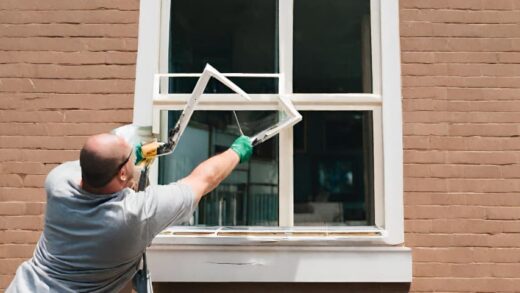When it comes to home maintenance, sliding doors often take a back seat. However, neglecting your sliding door hardware can lead to frustrating issues like difficulty in opening and closing, strange noises, and even security concerns. In this comprehensive guide, we’ll explore the importance of Naperville sliding door repair, focusing on rollers, locks, and handles.
Rollers: The Wheels of Smooth Operation
Explanation of Rollers
Rollers are the unsung heroes of your sliding door. They’re the wheels that allow your door to glide effortlessly along the track. Without properly functioning rollers, your sliding door can become a heavy, cumbersome obstacle. These small components bear the weight of the door, and when they’re in good shape, your door operates with ease.
Signs of Roller Problems
Learn to recognize common signs of roller wear and damage. These can include difficulty in sliding the door, strange squeaking or rattling noises, or even visible wear and tear on the rollers themselves. Early detection is crucial because worn-out rollers can lead to more extensive problems if not addressed promptly.
Maintenance and Lubrication
Now, let’s get hands-on. Discover the step-by-step process of cleaning and lubricating your rollers. Start by removing the door, accessing the rollers, and gently cleaning them to remove dirt and debris. We’ll recommend suitable lubricants like silicone-based products, explaining how to apply them for maximum effectiveness. Regular lubrication keeps those wheels turning smoothly, ensuring your door opens and closes effortlessly.
Locks: Ensuring Security and Peace of Mind
Types of Sliding Door Locks
Sliding doors can come with various types of locks, each serving a specific purpose. Understanding the different lock types is essential for both security and convenience. From mortise locks that are embedded within the door frame to surface-mounted locks that are visible on the door’s surface, we’ll cover them all.
Testing Lock Functionality
Security is paramount when it comes to sliding doors, which are often a vulnerable point in a home’s defense against intruders. We’ll teach you how to test and ensure that your sliding door locks are functioning correctly. This involves checking the alignment of the lock components, ensuring they engage smoothly, and confirming that the lock securely holds the door in place. Regular lock checks provide peace of mind, knowing your home is secure.
Cleaning and Lubricating Locks
In addition to functionality, the appearance of your locks matters. We’ll provide you with guidance on cleaning your locks to remove debris and dirt. You’ll learn about the types of cleaners that are safe to use on different lock materials. Additionally, discover the benefits of regular lock lubrication for maintaining smooth lock operation. Well-lubricated locks are less likely to jam or wear out prematurely.
Handles: The First Point of Contact
Types of Sliding Door Handles
Your choice of sliding door handles not only affects your door’s functionality but also its aesthetics. We’ll explore the world of sliding door handles, from pulls and levers to knobs. Different handle types offer unique advantages and can complement your door’s design and your personal preferences.
Cleaning and Maintenance
Handles are the first point of contact with your sliding door, and they often accumulate dirt, grime, and even fingerprints. We’ll provide you with effective tips for cleaning your handles to keep them looking attractive and ensure they function correctly. From simple cleaning with mild detergents to tackling stubborn stains or tarnish, you’ll learn how to maintain the appearance and functionality of your handles.
The Importance of Regular Hardware Inspection
Understanding how your sliding door hardware works is essential, but it’s equally crucial to know when to inspect it. Routine hardware inspections are your first line of defense against potential problems. By spotting issues early, you can prevent more extensive problems down the line and extend the lifespan of your sliding door hardware. We’ll discuss what to look for during these inspections and how often you should perform them.
DIY Hardware Maintenance vs. Professional Assistance
While some maintenance tasks can be handled as DIY projects, others may require professional assistance. We’ll help you differentiate between the two, ensuring you know when to roll up your sleeves and when to call in the experts. Safety is paramount, so we’ll highlight precautions to take when performing DIY maintenance and when to seek professional sliding door repair.
Conclusion
In conclusion, maintaining your sliding door hardware is a crucial aspect of home maintenance that should not be overlooked. By keeping your rollers, locks, and handles in top condition, you’ll ensure that your sliding doors operate smoothly, provide security, and last for years to come. Don’t wait until issues arise; start your sliding door hardware maintenance regimen today, and enjoy the benefits of a well-maintained home. And if you’re ever faced with the question, “How to fix a sliding screen door?” rest assured that your commitment to regular maintenance will make handling such issues a breeze. By staying proactive and dedicated to the care of your sliding door hardware, you’ll enjoy the peace of mind that comes with a well-maintained and beautiful home.


